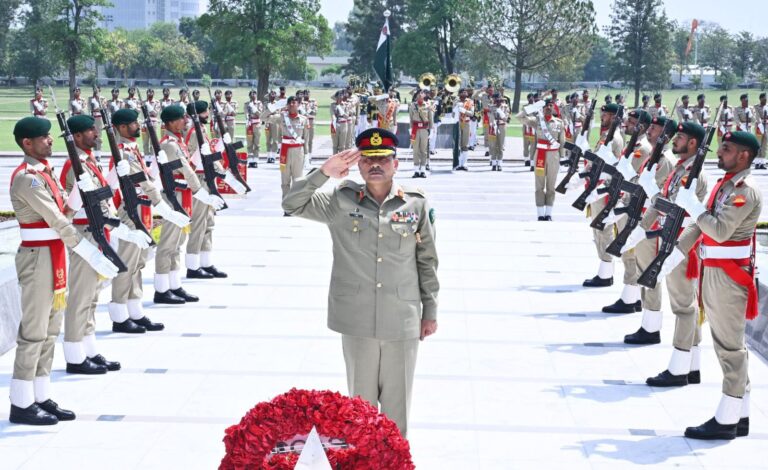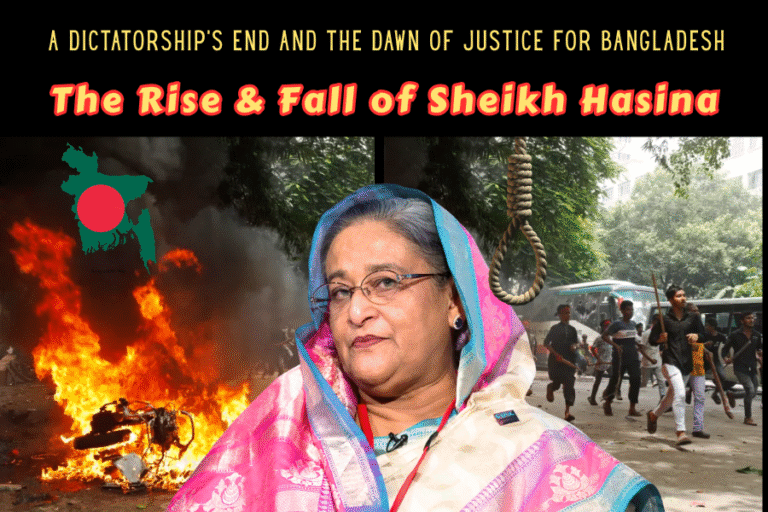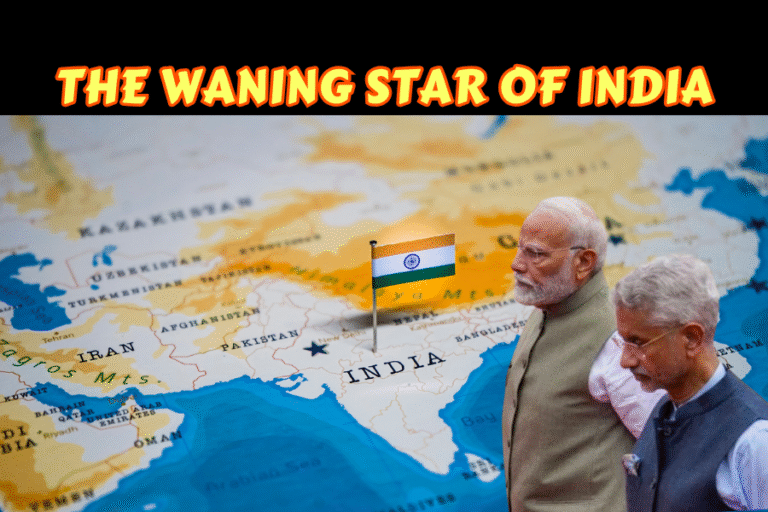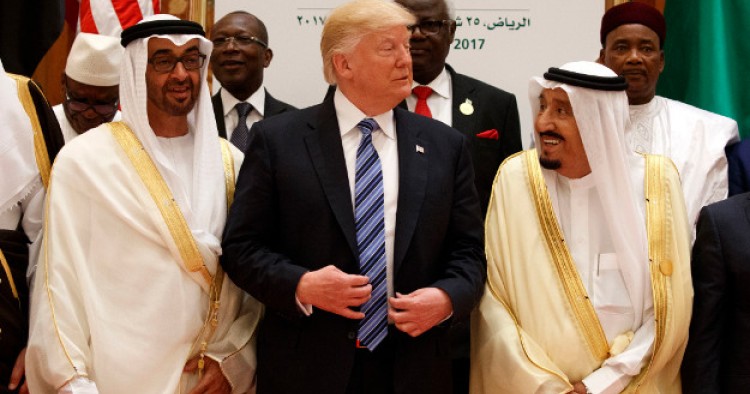(By Khalid Masood)
In a striking diplomatic maneuver, U.S. President Donald Trump will host Pakistan’s Chief of Army Staff (COAS), Field Marshal (FM) Syed Asim Munir, for a closed-door lunch at the White House on June 18, 2025. This rare engagement, detailed in the president’s official schedule, marks a pivotal moment in U.S.-Pakistan relations, signaling a cautious thaw after years of strained ties. Held in the Cabinet Room with no press access, the meeting underscores its sensitivity amid escalating Middle East tensions, recent India-Pakistan clashes, and Pakistan’s evolving economic ambitions. For Islamabad, FM Munir’s invitation is a diplomatic triumph, countering India’s recent high-level engagements in Washington and reinforcing Pakistan’s strategic relevance. This article delves into the potential agenda while analyzing the pros and cons for Pakistan in this high-stakes interaction.
1. Context of the Meeting
FM Syed Asim Munir, elevated to Pakistan’s rare five-star rank in May 2025, arrives in Washington on a five-day visit amid a volatile regional landscape. His promotion, the first since General Ayub Khan in 1959, followed Pakistan’s brief but intense military confrontation with India, sparked by the April 22, 2025, Pahalgam terror attack. Pakistan’s military, under FM Munir’s leadership, claimed a “decisive victory,” bolstering his domestic standing despite criticism of strategic missteps. The White House lunch, a rare honor for a foreign military leader, comes after protests by Pakistani-American activists and praise from U.S. Central Command (CENTCOM) chief General Michael Kurilla for Pakistan’s counterterrorism efforts against Islamic State Khorasan (IS-K). FM Munir’s public support for Iran in its conflict with Israel, coupled with his backing of U.S. de-escalation efforts, sets a complex backdrop for discussions with Trump.
The meeting counters Indian narratives of diplomatic isolation for Pakistan, particularly after an Indian delegation met Vice President JD Vance earlier in June 2025. For Islamabad, this engagement reaffirms its geopolitical weight, especially as Trump navigates the Israel-Iran crisis and seeks to balance U.S. interests in South Asia against China’s growing regional influence.
2. Potential Agenda Items
The lunch is likely to cover three key areas: the Israel-Iran conflict, Pakistan’s cryptocurrency ambitions, and U.S. interest in Pakistan’s rare mineral deposits. Each carries strategic implications for U.S.-Pakistan relations and Pakistan’s regional and global positioning.
a. Israel-Iran Conflict: Regional Stability and Counterterrorism
Pakistan’s vocal support for Iran, articulated by FM Munir in Washington, contrasts with Trump’s hawkish stance on Tehran, including threats to target Iran’s nuclear sites and Supreme Leader Ali Khamenei. Pakistan’s proximity to Iran, shared 900-kilometer border, and historical ties make it a critical player in managing regional fallout. The U.S. seeks Pakistan’s cooperation in several areas:
- Counterterrorism: FM Munir’s extradition of IS-K mastermind Mohammad Sharifullah, responsible for the 2021 Abbey Gate bombing, has strengthened U.S.-Pakistan counterterrorism ties. General Kurilla’s praise highlights Pakistan’s role in dismantling IS-K sanctuaries along the Afghanistan-Pakistan border, critical as the Taliban’s control pushes militants into Pakistan’s tribal areas. The U.S. may press for sustained operations and intelligence-sharing to prevent IS-K attacks on U.S. interests.
- Border Management: A prolonged Israel-Iran conflict risks destabilizing Pakistan’s western border, inflaming sectarian tensions and disrupting energy imports. The U.S. may seek assurances that Pakistan can secure its border to prevent spillover, especially if Iranian proxies like Hezbollah escalate activities.
- Diplomatic Leverage: Despite Pakistan’s condemnation of Israeli strikes as a “violation of Iran’s sovereignty,” FM Munir’s call for de-escalation aligns with U.S. efforts to avoid a wider war. Trump may explore Pakistan’s influence with Tehran, particularly through Muslim-majority forums like the Organisation of Islamic Cooperation (OIC), to push for restraint.
- Military Cooperation: Posts on social media speculate that the U.S. could request access to Pakistani airspace or air-bases for operations against Iran, leveraging Pakistan’s strategic location. Meanwhile, Pakistan’s civilian leadership has dismissed claims of nuclear support for Iran, calling them “fabricated.”
Pros for Pakistan:
- Strengthened counterterrorism partnership enhances U.S. military aid and intelligence support, vital for combating over 1,000 annual terrorist attacks.
- Diplomatic recognition as a mediator in the Israel-Iran crisis elevates Pakistan’s global stature, countering India’s regional influence.
- Assurances of border stability could secure U.S. economic assistance to offset rising oil prices impacting Pakistan’s $10 billion foreign reserves.
Cons for Pakistan:
- Aligning with U.S. demands risks straining ties with Iran, a key neighbor and energy supplier, potentially escalating sectarian tensions domestically.
- Granting airspace or base access could draw Pakistan into a U.S.-Iran conflict, provoking Iranian retaliation or Houthi attacks on Pakistani interests.
- Public support for Iran, voiced by FM Munir, complicates neutrality, risking backlash from Gulf allies like Saudi Arabia, who host millions of Pakistani workers.
b. Cryptocurrency Ambitions: Economic Diversification
Pakistan is reportedly central to a $2 billion cryptocurrency deal with a Trump-linked venture in the UAE, aimed at weaponizing digital finance to bolster Pakistan’s economy. With public debt at PKR 76,000 billion and GDP growth lagging at 2.7%, Pakistan seeks to leverage crypto to attract foreign investment and reduce reliance on China’s Belt and Road Initiative (BRI).
- Trump’s Interest: Trump’s personal fascination with cryptocurrency, noted by analysts, aligns with Pakistan’s push. The U.S. may view Pakistan’s crypto ventures as a means to counter China’s digital yuan and secure economic influence in South Asia.web:4,9
- Military Role: The Pakistani military’s involvement in overseeing the crypto deals raises questions about transparency, with critics alleging it strengthens the army’s economic dominance. FM Munir may seek Trump’s endorsement or investment from Trump family ventures to legitimize the initiative.
- Regulatory Framework: Pakistan’s civilian government has yet to fully regulate cryptocurrency, creating risks of money laundering or sanctions evasion. Discussions could focus on U.S. technical assistance to align Pakistan’s crypto market with global standards.
Pros for Pakistan:
- U.S. backing for crypto ventures could attract billions in investment, boosting foreign reserves and reducing debt dependency on China ($15 billion bilateral loans).
- Military-led crypto projects could modernize Pakistan’s financial sector, enhancing remittances from its 8 million-strong diaspora.
- Trump’s personal interest may secure favorable U.S. policies, such as relaxed sanctions scrutiny, fostering economic stability.
Cons for Pakistan:
- Military dominance in crypto risks alienating civilian institutions, fueling domestic unrest.
- Unregulated crypto markets could invite U.S. sanctions or FATF blacklisting, undermining Pakistan’s economic recovery (inflation fell to 0.3% in April 2025).
- Ties to Trump-linked ventures may politicize the initiative, exposing Pakistan to U.S. domestic backlash if Trump’s policies falter.
c. Rare Pakistani Minerals: Strategic Resource Access
Pakistan’s rich deposits of lithium, copper, gold, and rare earth elements are increasingly attractive to the U.S., which seeks to diversify critical mineral supply chains away from China. FM Munir’s visit follows a U.S. business delegation, led by Trump associate Gentry Beach, exploring mining investments in Pakistan post-Trump’s January 2025 inauguration.
- U.S. Demand: The U.S. aims to secure minerals for electric vehicles, semiconductors, and defence technologies. Pakistan’s Balochistan and Khyber Pakhtunkhwa regions hold untapped potential, but require foreign investment to develop infrastructure.
- Pakistan’s Pitch: FM Munir may offer mining concessions to U.S. firms, leveraging Trump’s deal-making instincts to secure technology transfers or economic aid. Pakistan’s wary of China’s BRI debt trap, making U.S. partnerships appealing.
- Security Challenges: Insurgent groups in Balochistan, coupled with over 1,000 terrorist attacks in 2024, pose risks to mining operations. The U.S. may condition investments on enhanced security measures.
Pros for Pakistan:
- U.S. investment in mining could generate billions in revenue, supporting infrastructure and job creation in underdeveloped regions.
- Strategic mineral partnerships elevate Pakistan’s role in global supply chains, reducing economic reliance on Gulf remittances.
- Technology transfers from U.S. firms could modernize Pakistan’s mining sector, enhancing long-term competitiveness.
Cons for Pakistan:
- Security risks in Balochistan could deter investors, requiring costly military deployments that strain Pakistan’s budget.
- Over reliance on U.S. firms risks alienating China, Pakistan’s largest lender, potentially disrupting BRI projects like the China-Pakistan Economic Corridor (CPEC).
- Environmental and local opposition to mining could spark protests, complicating FM Munir’s domestic legitimacy.
3. Strategic Implications for Pakistan
The President Trump-FM Munir meeting is a double-edged sword, offering Pakistan diplomatic and economic opportunities while exposing it to regional and domestic risks. The agenda reflects Washington’s need for Pakistan’s cooperation in a multipolar world, but Islamabad must navigate competing pressures from Iran, China, and its own populace.
a. Diplomatic Gains
- Countering India: FM Munir’s White House visit neutralizes India’s diplomatic edge, reinforcing Pakistan’s relevance despite New Delhi’s claims of isolating Islamabad post-Pahalgam.
- Global Stature: Pakistan’s role in counterterrorism and potential mediation in the Israel-Iran conflict elevates its profile, particularly within the OIC and Muslim-majority nations.
- U.S. Re-engagement: The meeting signals a thaw in U.S.-Pakistan ties, strained since the U.S. Afghanistan withdrawal in 2021, potentially unlocking military and economic aid.
b. Regional Risks
- Iran-Israel Balancing Act: Pakistan’s support for Iran, while aligning with domestic sentiment, risks U.S. displeasure if Trump escalates against Tehran. Conversely, cooperating with U.S. military plans could provoke Iranian retaliation along Pakistan’s border.
- India Tensions: FM Munir’s anti-India rhetoric, while domestically popular, complicates U.S. efforts to maintain ties with both South Asian powers. Trump’s offer to mediate on Kashmir, rejected by India, underscores this challenge.
- Gulf Relations: Pakistan’s pro-Iran stance may strain ties with Saudi Arabia and the UAE, who fund Pakistan’s economy through remittances and loans.
c. Domestic Dynamics
- Military Dominance: FM Munir’s elevated role, cemented by his Field Marshal rank and crypto/mineral deals, strengthens the military’s grip on Pakistan’s economy and politics, fueling PTI protests and democratic concerns.
- Economic Fragility: While crypto and mineral ventures promise growth, Pakistan’s PKR 76,000 billion debt and 2.7% GDP growth limit its ability to absorb setbacks, such as U.S. sanctions or mining disruptions.
- Public Sentiment: FM Munir’s counterterrorism successes and anti-India stance boost his popularity (93% approval post-India conflict) among urban and diaspora communities.
4. Pros and Cons Summary for Pakistan
| Area | Pros | Cons |
| Israel-Iran Conflict | Enhanced counterterrorism aid, diplomatic prominence, border security support | Risk of Iranian retaliation, strained Gulf ties, potential conflict entanglement |
| Cryptocurrency | Economic diversification, U.S. investment, reduced China dependency | Military dominance, sanctions risk, domestic unrest |
| Rare Minerals | Revenue generation, global supply chain role, addressing infrastructure gaps | Security risks, China tensions, environmental protests |
5. Critical Assessment
The White House lunch is a strategic pivot for Pakistan, offering a platform to reclaim U.S. favor while advancing economic ambitions. However, the probable agenda’s complexity—spanning counterterrorism, crypto, and minerals—demands deft diplomacy to avoid alienating key partners like Iran or China. FM Munir’s public support for Iran, while resonating domestically, risks positioning Pakistan as a U.S. pawn in a potential Iran conflict, a scenario has historically avoided. The military’s economic ventures, particularly in crypto, could modernize Pakistan’s economy but deepen civil-military imbalances. Mineral deals with the U.S. promise long-term gains but face immediate security and geopolitical hurdles.
For the U.S., FM Munir’s visit is a pragmatic move to secure Pakistan’s cooperation amid Middle East turmoil and counter China’s regional influence. Trump’s personal interest in crypto and minerals aligns with Pakistan’s offerings, but his unpredictable style risks oversimplifying Pakistan’s complex position.
6. Conclusion
The White House lunch on June 18, 2025, is a pivotal diplomatic event for Pakistan, reaffirming its strategic relevance amid global crises. The agenda is likely to span the Israel–Iran conflict, Pakistan’s cryptocurrency ventures, and U.S. access to rare minerals — each offering opportunities to bolster Pakistan’s economy and international standing. However, the risks are real: potential entanglement in a U.S.–Iran conflict, strained ties with China or Gulf allies, and possible domestic unrest. For Pakistan, the meeting is a chance to leverage its geopolitical position, but success will depend on navigating these competing pressures with statecraft and restraint. As FM Munir dines with President Trump, Pakistan stands at a critical crossroads — where bold ambition must be tempered by the realities of a volatile region and a fragile economy.







